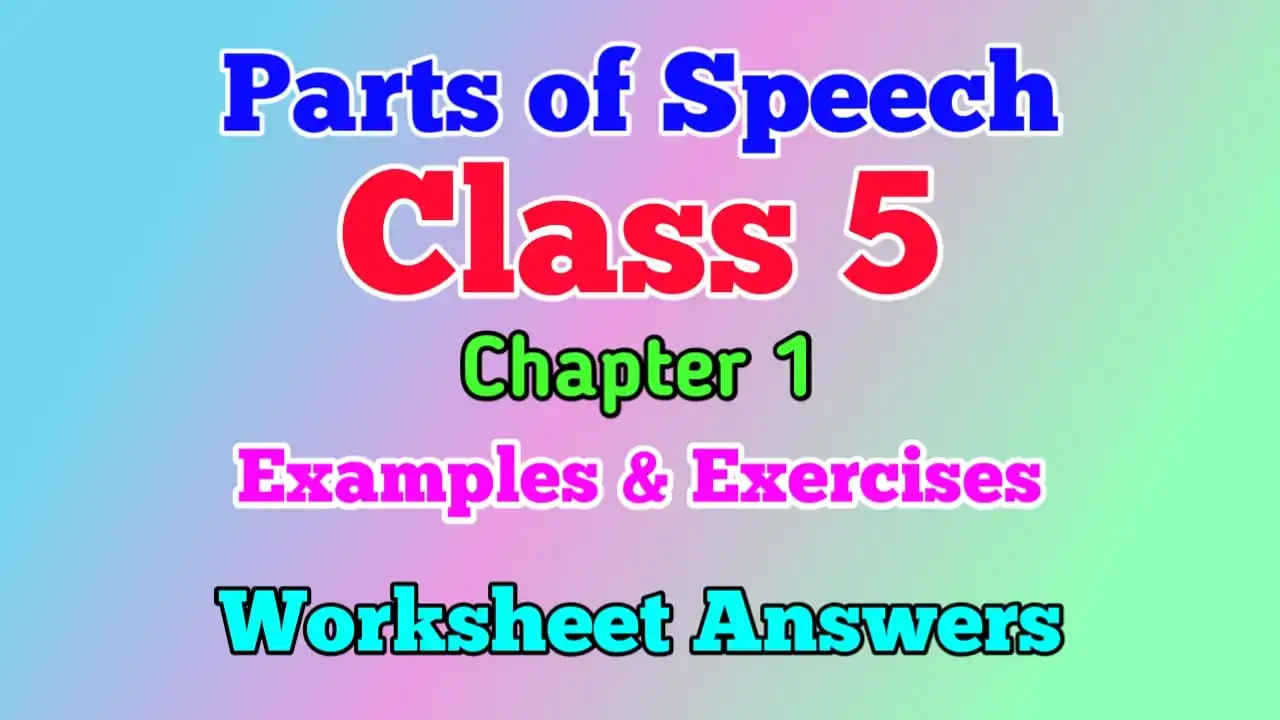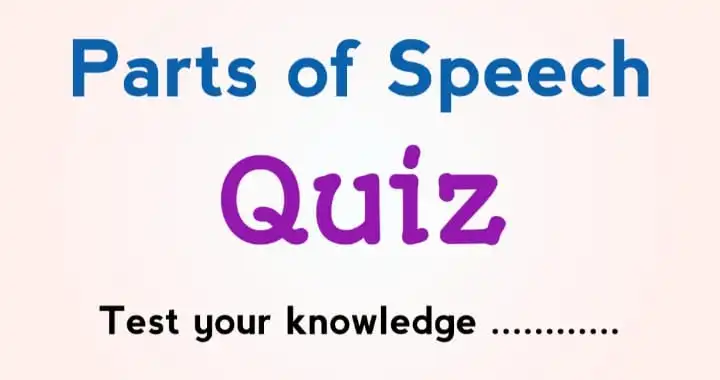The Interchange of parts of speech in English grammar involves altering one part of speech to another within a sentence while maintaining the same meaning. An example of this interchange can be seen in the ‘do as directed‘ section, where techniques are applied to convert nouns into adjectives, adjectives into adverbs, verbs into nouns, and vice versa.
Interchange of Parts of Speech from Noun to Adjective
1. Rules for Interchange of Parts of Speech from Noun to Adjective
- Determine the noun within the sentence.
- Find the appropriate adjective form of the noun by adding a suffix or modifying the word.
- Ensure that the adjective form is grammatically correct and spelled properly.
- Substitute the noun in the sentence with its adjective form.
- Follow the grammatical order of adjectives in a sentence.
- Read the sentence to confirm that the adjective form accurately describes the noun and fits the context.
2. Examples of Interchange of Parts of Speech from Noun to Adjective
The Following examples are about the Interchange of Parts of Speech from Noun to Adjective.
A. Rewrite the sentences with the Adjective form of the underlined words.
(1) The hikers marveled at the majestic mountain rising high above them. (Noun)
Ans: The hikers marveled at the majestic mountainous terrain rising high above them. (Adj)
(2) The waves of the ocean crashed against the shore, creating a soothing melody. (Noun)
Ans: The oceanic waves crashed against the shore, creating a soothing melody. (Adj)
(3) Children gazed up at the sky filled with clouds, hoping for a glimpse of the sun. (Noun)
Ans: Children gazed up at the cloudy sky, hoping for a glimpse of the sun. (Adj)
(4) Despite the harshness of the desert, life still thrived in the arid expanse. (Noun)
Ans: Despite its harsh desertic conditions, life still thrived in the arid expanse. (Adj)
(5) As the sun set, the forest became cloaked in shadows, creating an atmosphere of mystery and intrigue.(Noun)
Ans: As the sun set, the forestal area became cloaked in shadows, creating an atmosphere of mystery and intrigue. (Adj)
(6) He showed generosity even to his enemies. (Noun)
Ans: He was generous even to his enemies. (Adj)
(7) There is a slight difference between the two pictures. (Noun)
Ans: The two pictures are slightly different. (Adj)
(8) He has sufficient intelligence to do the job. (Noun)
Ans: He is sufficiently intelligent to do the job. (Adj)
(9) I am fully sure of its necessity. (Noun)
Ans: I am fully sure that it is necessary. (Adj)
Interchange of Parts of Speech Adjective to Noun
1. Rules to Change Adjectives to Nouns
- Determine the corresponding noun form of the adjective.
- This may involve adding a suffix, changing the ending, or using the base form of the word.
- Ensure that the noun form agrees with the context of the sentence in terms of number, gender, and case.
- Replace the adjective in the sentence with its corresponding noun form to maintain coherence and clarity.
2. Examples of Interchange of Parts of Speech from Adjective to Noun
Interchange of Parts of Speech from Adjective to Noun is discussed in the following.
A. Rewrite the sentences with the Noun form of the underlined words.
(1) The old castle was enchanting at night. (Adj)
Ans: The old castle exuded enchantment at night. (Noun)
(2) The sky looked gloomy before the storm. (Adj)
Ans: The sky exhibited gloominess before the storm. (Noun)
(3) The party was lively with music and laughter. (Adj)
Ans: The party radiated liveliness with music and laughter. (Noun)
(4) The girl is very beautiful. (Adj)
Ans: The girl is a beauty. (Noun)
(5) Iron gains strength from the addition of nickel. (Noun)
Ans: Iron becomes stronger with the addition of nickel. (Adj)
(6) The journey was not expensive. (Adj)
Ans: The journey did not require much expense. (Noun)
(7)Though poor, he is honest. (Adj)
Ans: In spite of his poverty, he is honest. (Noun)
(8) He is strong enough to do it. (Adj)
Ans: He has the strength to do it. (Noun)
People also search
Changing Adjective to Adverb
Rewrite the sentences with the Adverb form of the underlined words.
(1) She made a fast run to catch the bus before it left. (Adj)
Ans: She ran fast to catch the bus before it left. (Adv)
(2) She sang with beautiful grace, captivating the audience with her melodious voice. (Adj)
Ans: She sang beautifully, captivating the audience with her melodious voice. (Adv)
(3) She handled the fragile vase with careful precision, ensuring it wouldn’t break. (Adj)
Ans: She handled the fragile vase carefully, ensuring it wouldn’t break. (Adv)
(4) It is probable that he will come today. (Adj)
Ans: He will probably come today. (Adv)
(5) He passed an anxious hour. (Adj)
Ans: He passed an hour anxiously. (Adv)
(6) He is certain to come. (Adj)
Ans: He will certainly come. (Adv)
(7) Her dress was poor and mean. (Adj)
Ans: She was poorly and meanly dressed. (Adv)
(8) That he had made a mistake was evident. (Adj)
Ans: Evidently, he had made a mistake. (Adv)
(9) His action was both prompt and wise. (Adj)
Ans: He acted both promptly and wisely. (Adv)
(10) The answer appears to the point. (Verb)
Ans: The answer is apparently to the point. (Adv.)
Changing Noun to Adjective and Adverb
Rewrite the sentences with the Adjective and Adverb form of the underlined words.
(1) It was in evidence that he had made a mistake. (Noun)
Ans: That he had made a mistake was evident. (Adj)
Ans: Evidently, he had made a mistake. (Adv)
(2) In all probability it will rain in the afternoon. (Noun)
Ans: It is very probable that it will rain this afternoon. (Adj)
Ans: Probably it will rain in the afternoon. (Adv)
(3) It is his habit to speak ill of others. (Noun)
Ans: He is habituated to speaking ill of others. (Adj)
Ans: He speaks ill of others habitually. (Adv)
(4) He treated me with scorn. (Noun)
Ans: He gave me scornful treatment(Adj)
Ans: He treated me scornfully. (Adv)
Changing Noun to Verb
Do as Directed: Rewrite the sentences with the Verb form of the underlined words.
(1)There is a great difference between the two languages. (Noun)
Ans: The two languages differ greatly from each other. (Verb)
(2) It was not my intention to harm you. (Noun)
Ans: I did not intend to harm you. (Verb)
(3) He wore a bright and costly dress. (Noun)
Ans: He dressed himself in a bright and costly attire or dress. (Verb)
(4) He had no intention of insulting you. (Noun)
Ans: He did not intend to insult you. (Verb)
(5) He understood the thing by a careful analysis . (Noun)
Ans: By carefully analyzing the thing he understood it. (Verb)
(6) What will be the cost? (Noun)
Ans: How much will it cost? (Verb)
(7) I cannot agree to your proposal. (Noun)
Ans: I cannot agree to what you propose. (Verb)
(8) I hope you will achieve success in all your undertakings. (Noun)
Ans: I hope you will succeed in all that you undertake. (Verb)
(9) His failure is a great disappointment to me. (Noun)
Ans: That he has failed has greatly disappointed me. (Verb)
(10)They had their dinner before your arrival. (Noun)
Ans: They had dined before you arrived. (Verb)
(11) His dress was poor. (Noun)
Ans: He was poorly dressed. (Verb)
Changing Verb to Noun
Rewrite the sentences with the Noun form of the underlined words.
(1) He agreed to supply me with coal. (Verb)
Ans: He made an agreement to supply me with coal. (Noun)
(2) I do not trust him. (Verb)
Ans: I have no trust in him. (Noun)
(3) Your behaviour has surprised me. (Verb)
Ans: Your behaviour has caused me surprise. (Noun)
(4) He succeeded through his perseverance. (Verb)
Ans: He achieved success through his perseverance. (Noun)
(5) This house is priced at ten lac. (Verb)
Ans: The price of this house is ten lac. (Noun)
(6) They differ from each other. (Verb)
Ans: There is a difference between them. (Noun)
(7) He replied quickly. (Verb)
Ans: He gave a quick reply. (Noun)
(8) The way to live long is to keep regular habits. (Verb)
Ans: The way to a long life is the keeping of regular habits. (Noun)
(9) This costs ten rupees. (Verb)
Ans: The cost of this was ten rupees. (Noun)
Interchange of Parts of Speech from Noun to Adverb
Rewrite the sentences with the Adverb form of the underlined words.
(1) He set down his burden with gentleness. (Noun)
Ans: He set down his burden gently. (Adv)
(2) She answered my questions with intelligence. (Noun)
Ans: She answered my questions intelligently. (Adv)
(3) It is unfortunate that he failed. (Noun)
Ans: Unfortunately, he failed. (Adv)
(4) He agreed to the proposal with joy. (Noun)
He agreed to the proposal joyfully. (Adv)
(5) There is no doubt that he is guilty. (Noun)
Ans: Undoubtedly, he is guilty. (Adv)
(6) He passed the day in anxiety. (Noun)
Ans: He passed the day anxiously. (Adv)
Interchange of Parts of Speech: Adverb to Noun
Rewrite the sentences with the Noun form of the underlined words.
(1) I signed the bond reluctantly. (Adv)
Ans: I signed the bond with reluctance. (Noun)
(2) He faced the enemy courageously. (Adv)
Ans: He faced the enemy with courage. (Noun)
(3) They work differently. (Adv)
Ans: There is a difference between the ways they work. (Noun)
(4) He acted prudently. (Adv)
Ans: He acted with prudence. (Noun)
(5) It is not likely that he will fail. (Adv)
Ans: There is no likelihood of his failure. (Noun)
(6) He fought bravely. (Adv)
Ans: He put up a brave fight. (Noun)







